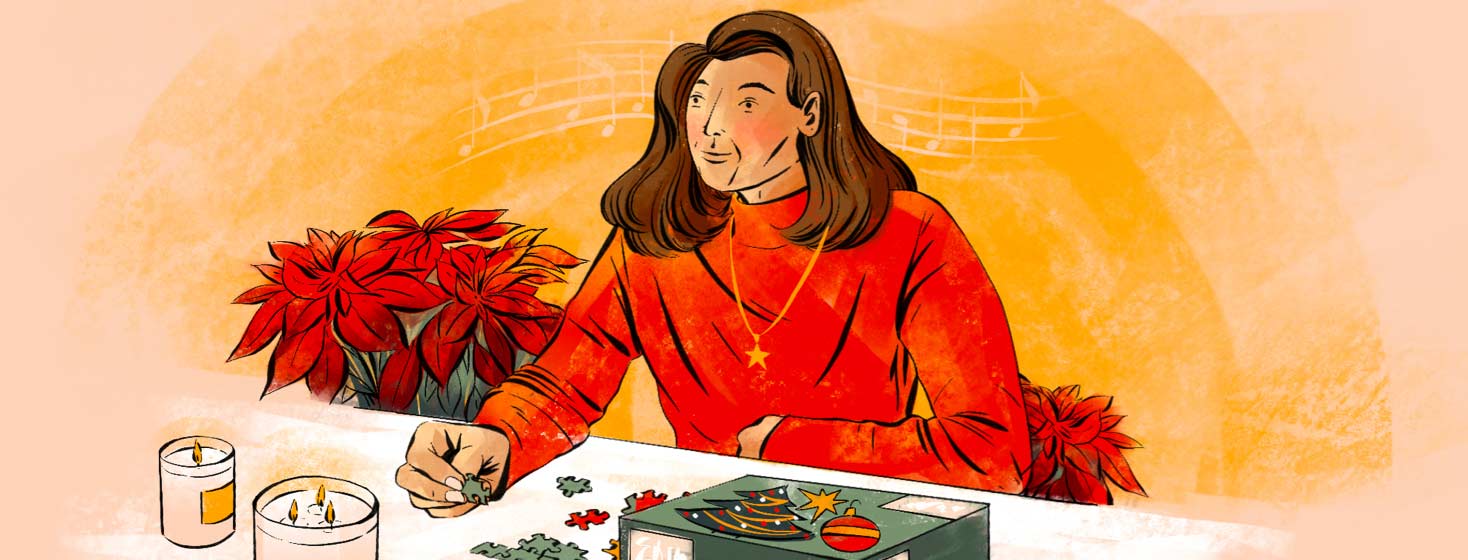Navigating Holiday Madness With NMOSD
Navigating the holidays can often be difficult for those living with rare diseases like NMOSD. The holiday season can be a joyous time, but it can also be a source of stress and anxiety for everyone, especially for individuals with a rare disease.
It’s important to note that not everybody has the same relationship with the holidays and this is often a very emotional time of year.
This or That
Do you find the holidays harder since being diagnosed with NMOSD?
Holiday grief
Having a rare disease during the holidays can mean you are grieving the way you used to be able to celebrate. You are simply not able to keep up with the rest of your family and friends or even just not feeling good enough to want to celebrate.
In a lot of cases, many with rare disease diagnoses have had to cut off family and friends due to their lack of support and understanding. So for those no longer able to celebrate with family or friends, it can feel very lonely. All of these factors can also be a trigger for symptoms.
Setting expectations
It’s important to set realistic expectations during the holiday season. The most important is to prioritize your needs. You don’t have to make it to every Christmas party game night or gift exchange. Focus on the most important events and traditions, but also give yourself grace if you’re not able to make that.
Along with setting expectations comes pacing yourself. Don’t over commit to too many obligations, to the point where you are not able to take breaks and rest when you need it. If you are like me and like to host, make sure to lower the hosting bar. You should not feel pressured to host the perfect holiday gathering, especially if you are encountering problems like fatigue and symptom management.
Delegating tasks
Something that has always been hard for me was to communicate my needs to my loved ones so that they know why I may miss a gathering or why I may not be as cheerful as I have been in times before. You should not feel bad for setting boundaries for your disease and limiting what you are unable to handle.
If you have family and friends around that are willing to help, it’s important to delegate tasks like cooking, cleaning or gift wrapping. If you know there is something that may be simple to others but difficult for yourself with NMOSD, try communicating your needs. It’s also important that you say no to certain activities or invitations, as hard as that may feel.
Joy in small things
Releasing expectations of what the perfect holiday gathering should be can help you focus on the positives. Spend time with loved ones enjoying the holiday spirit, no matter what that looks like for you. Find joy in small things and appreciate little moments of happiness, such as a child opening their first present or cutting that first slice of grandma’s fruit cake. And always practice gratitude to reflect on the things that you’re grateful for.
Seeking connection
You should seek support and connect with others who are going through the same things that you are. Support groups and online communities (such as Neuromyelitis-Optica.net!) can offer advice and a space to communicate the worries you may have during this time of year.
Remember, it’s okay to adjust holiday plans to support your health needs. By leaning on your support system and prioritizing things like self-care and boundaries, you can still enjoy the holiday season without compromising your health and well-being.

Join the conversation